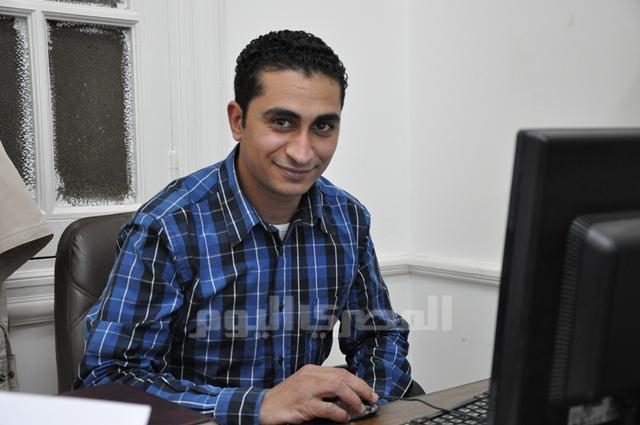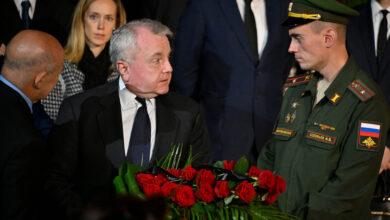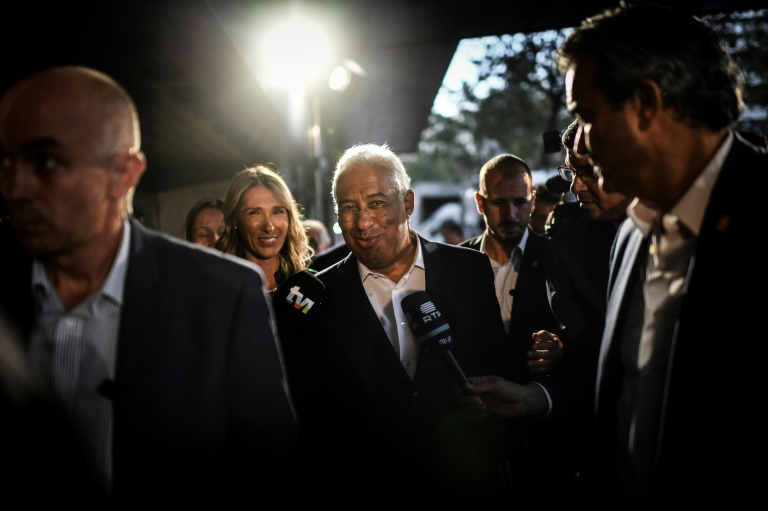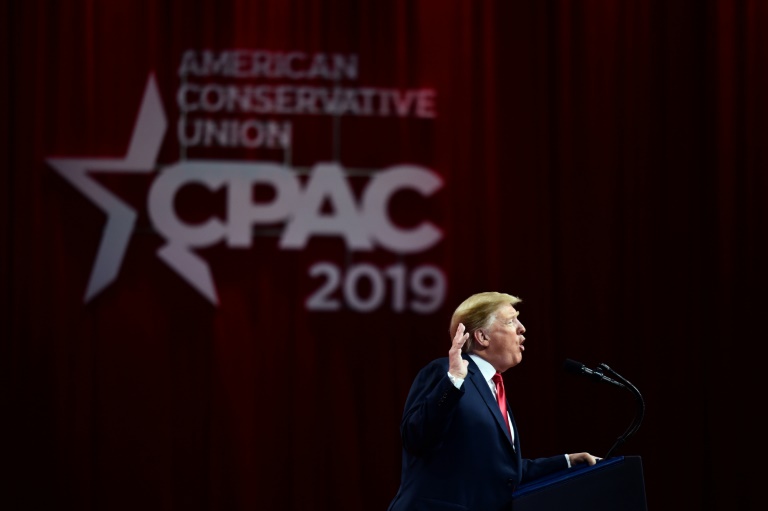
Ahmed Ezzat is on the phone talking about the recent case he has been working on. “The students are planning for another fight regarding their university’s bylaws and we should advocate for that in the coming press conference,” he says, as he paces back and forth across his office in downtown Cairo, spending a warm spring afternoon trying to garner media support for university students’ struggle against a Mubarak-like administration.
Ezzat is a rights lawyer, co-founder and director of the legal unit at the Association for Freedom of Thought and Expression (AFTA), an NGO that monitors academic freedom, media censorship and free access to information as well as providing legal assistance to students against oppressive measures by administrations since its establishment in 2006.
Even though Ezzat’s work at AFTA takes much of his time, his membership in the Revolutionary Socialists has become his life project since he joined in 1999, when he was 16.
“This is what I had been looking for; a secret organization that works with the aim of bringing down the regime and has a vision not just for changing Egypt but the whole world,” Ezzat says of the group, which was established in 1990 by a group of university students.
Through the group, he matured as a political activist and participated in major opposition protests and movements, including mass protests in support of the Palestinian Intifada in 2000, anti-Iraq occupation demonstrations in 2003, the 2005 change movement, the independent judiciary movement in 2006, the 2008 labor strikes, and most recently the 25 January revolution.
“The state is an oppressive tool that makes people submissive to the ruling class,” Ezzat tells Egypt Independent.
For him, revolutionary forces taking over state institutions is the key to the success of the 25 January revolution, which has been experiencing a series of setbacks since the armed forces and conservative Islamist Muslim Brotherhood ascended to power.
Born in the governorate of Fayoum to a very poor family, 30-year-old Ezzat has bronzed skin, dark curly hair, brown eyes and the heart of a revolutionary. The young lawyer has long rebelled against society’s traditions and fears in order to pursue his passion for political activism and his ambition to break the rules of the world around him.
Before becoming the revolutionary he is now, Ezzat was raised in a conservative religious household that largely shied away from any form of political activity, as they were witnesses to a long history of repression of Islamist groups in their neighborhood.
“I grew up listening to stories about State Security and Central Security Forces storming the houses of Islamist group leaders, beating them, and even firing at them in the middle of the night, as well as police officers torturing people in the police station,” says Ezzat.
That all changed when Ezzat was 16 and discovered socialism through a group that assembled at a local youth cultural center in his area. It planted the seeds of socialism in Ezzat’s mind. The group didn’t have the chance to put their ideas into action because of their isolation and persecution by the community due to their alien ideas, he says. The youth center became their haven where they spent hours reading history, literature, and writings by political philosophers such as Hegel, Marx and Ibn Khaldoun as well as holding debates about different political and social issues.
“These readings completely changed my interests and my outlook to the world. I felt that I found myself and my passion in these ideas. I was determined about what I wanted to do with my life,” he says.
Those ideals have informed Ezzat’s work over the last revolutionary year.
He generally has little faith in elections and rather believes in the power of grassroots activism away from political elites, which is one of the reasons why he was against being part of the 25 January Revolution Youth Coalition that was formed during the 18 days, constituting representatives from different political groups and parties.
“It [the coalition] harmed the revolution because it was elitist and they were politically immature and kept away other political forces,” says Ezzat.
Ezzat was the one who coined the idea of the popular committees to protect the revolution that was born during the 18-day uprising and then continued afterwards. The idea was originally to form groups of young people living in the different neighborhoods that would replace the police to secure their houses and families as well as be the bridge between the protesters sitting-in in Tahrir Square and the people in their homes. It was a response to the authorities’ arbitrary spreading of rumors about the security vacuum and armed attacks on homes and shops as a way to keep people away from the streets and protests.
He was also one of the minds behind the issuance of a daily newsletter during the 18 days that came out from Tahrir Square announcing the stance of the revolutionaries and providing a guide for the popular committees.
Ezzat became a main coordinator between the 25 popular committees in the different areas until today, although they are not as active now as during the past year. He was the one who started lobbying for the idea among the different activist groups with the aim of “spreading the revolution in all parts of Egypt.”
After 11 February 2011 when Mubarak stepped down, Ezzat envisioned the committees as having a more sustainable role than that during the sit-in. “The aim is to transform the popular committees to an alternative local authority that manages the daily problems of municipalities through monitoring police stations, secures areas against criminals, and encourages political participation,” says Ezzat.
Later, the committees had a very active role in mobilizing residents of neighborhoods against problems specific to their areas, such as garbage collection by the governorate, organizing protests, monitoring parliamentary elections candidates’ campaigns and raising political awareness about the different issues in the political scene. “We can organize ourselves without the need for a higher authority to organize us, such as the police or the military,” adds Ezzat.
Another initiative in which he was a main strategist is the Kazeboon (Liars) campaign, which included street screenings in different areas across the country designed to expose the ruling Supreme Council of the Armed Forces’ lies about army violations against protesters.
Ezzat now acts as the spokesman for the Revolutionary Socialists and is responsible for coordinating with other activist groups and forging alliances. When the Muslim Brotherhood launched a media attack against the Revolutionary Socialists a few months ago, accusing them for wanting to destroy the state, Ezzat took it upon himself to defend his organization through getting into public debates with Brotherhood members.
“Reform forces such as the Brotherhood use the masses to reach power and once they do, street activity becomes a headache for them and anyone encouraging the people to rise up and revolt will be considered the enemy even though it was an ally before,” says Ezzat.
Ezzat and his comrades are now concentrating their work on student and labor movements through supporting their protests as well as providing them with legal assistance in case of their arrest. Students have been especially active in the past months, forming national students’ coalitions in both universities and schools. Ezzat explains that Revolutionary Socialists have a key role in this mobilization through spreading their ideas among students. Ezzat used to head the revolutionary socialists group back when he was a student.
“Membership from students has surged lately and now we have a group in every university and in many high schools,” says Ezzat enthusiastically.
His university years were a formative experience for Ezzat as an activist. Although he joined law school at Cairo University in 1998, he originally wanted to study engineering. However, Ezzat’s last year in high school was a turning point in his life, redirecting him to a totally different path than the one set for him by his family.
Ezzat was detained for two weeks in 2000 when he was arrested during protests in solidarity with the Palestinian Intifada. “For a family that opts to live on the sidelines, that was inconceivable,” Ezzat explains. Thus, the defiant son didn’t find any alternative but to leave his family’s house and go stay in Cairo. “I wasn’t ready to give up on what I was doing, and it was dangerous for them,” he says.
As punishment for his disobedience, Ezzat’s parents didn’t give him one penny when he left the house, and he had to borrow money to pay for transportation. When he reached Cairo, he had to build himself up from scratch. He had to find a source of income, so he roamed the streets, passing by every business looking for vacancies. He worked in cafes, a falafel restaurant and a print house for a pittance, and he was sharing a room with another man in the poor neighborhood of Boulaq.
Ezzat was a top student at law school, and he started training at a legal office which he found unsatisfying, so he shifted his career to be a rights lawyer specializing in labor issues. He volunteered to work on selective cases at the Hisham Mubarak Legal Center, a human rights legal office, which gave him an opportunity to learn the secrets of the profession at the hands of two of the most prominent human rights and labor lawyers: Ahmed Seif al-Islam and Khaled Ali, now a presidential hopeful.
He made his career breakthrough in 2008 during the Mahalla workers protests when he was on the detained workers’ defense team. Although it was the first time that he took the stage in front of a state security court, he gave an outstanding defense which was later put in an encyclopedia for the best oral arguments. “Since then, I took an oath to myself that that should be my marker and I should never perform any less than that,” says Ezzat.




